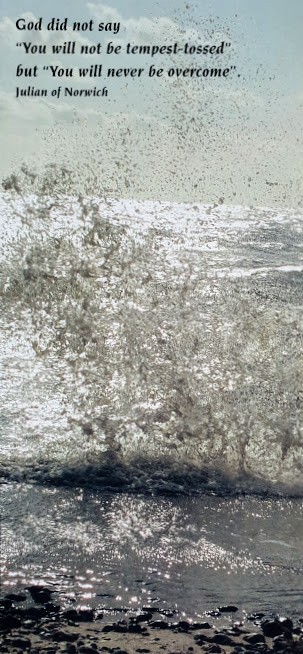
Our next service of healing and wholeness is on Sunday 27th October at 5pm. Come for peace and prayer, for ourselves and those people and situations on our hearts

Our next service of healing and wholeness is on Sunday 27th October at 5pm. Come for peace and prayer, for ourselves and those people and situations on our hearts
Croydon Churches Floating Shelter offers guests (who are homeless people living on the streets) a hot meal, a bed for the night and valuable companionship in a warm, safe and caring environment.
The Shirley Floating Shelter will again operate this winter from Shirley Methodist Church on eight Sunday evenings, 10th November – 22nd December. As part of our long-standing partnership, St John’s works with Shirley Methodists to help with these nights. Other Croydon churches will be covering other nights, and yet others will be open from January to March, thus covering the five coldest months of the year.
Once more volunteers are needed. Can you help at Shirley?
Those volunteering before have found it a happy, interesting and rewarding experience. We would love to welcome new volunteers – do think about it and contact Brian or Jonathan (details below) to find out more.
The help we need is:
Provisioners – to bring in a pre-cooked main meal
Cooks and servers – to come in and cook the prepared food and serve our guests
Overnighters – to stay with our guests. Four overnighters are needed each night. Two beds are set up in a separate room. There are two shifts of four hours (allowing two to sleep while two while two are awake helping.) Overnighters welcome the guests and spend time with them, eating, talking and listening; playing games, and helping to make it a pleasant evening.
Clearers and cleaners – arrive as the guests leave at 8am
Launderers – to collect a bag of laundry (sheets, towels and flannels) to take home to wash, iron and return by the next Sunday
Reception – sometimes overnighters cover this but it is good to have additional cover during the evening.
There are lists in at the back of Church at St John’s, and in the Welcome Area at Shirley Methodist Church, to sign with offers of help
Trustee: Jonathan Baxter 020 8777 3158
Co-ordinator: Brian Cantrell 07468 618553
The streets are especially cruel in the winter months. Please help if you can.
Thank you
We give thanks for God’s gracious provision in our own times of difficulty and distress, and we pray for our brothers and sisters in Christ who will need support and shelter in the coming months:
“You have been a refuge for the poor,
a refuge for the needy in their distress,
a shelter from the storm
and a shade from the heat.”
Isaiah 25:4
Matthew 6:19-22 New Revised Standard Version (NRSV)
19 “Do not store up for yourselves treasures on earth, where moth and rust consume and where thieves break in and steal; 20 but store up for yourselves treasures in heaven, where neither moth nor rust consumes and where thieves do not break in and steal. 21 For where your treasure is, there your heart will be also.”
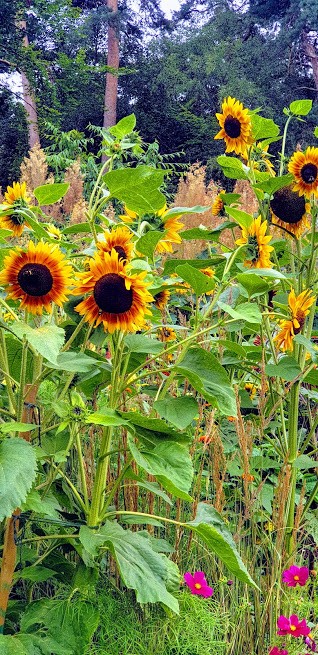
This is an interesting passage, designated for the fourth Sunday of Creationtide. This liturgical time invites us as a church community to look at our consumption of the earth’s resources; how we engage and co-operate with the bio-diversity of the planet; and where we intrude on others’ rights and exploit what is not ours to take. All those aspects are in this short reading – symbolised in the all-consuming rust, the result of our neglect; the moths which are attracted, as we are, to bright consumables; and the thieves, who trespass on land and person, ignore others’ wellbeing, and take what they have no right to, for themselves. It is clear from the imagery that this sense of trespass is social and economic, as well as physical, spiritual and to do with mental and emotional health.
If we look around us, as the next verse of this passage invites to, with a “sound eye,” “The eye is the lamp of the body, so, if your eye is healthy, your whole body will be full of light;” then we can see that if our heart is not God’s heart, and his Kingdom, then we are part of the problem; and that affects not just us, but all those with whom we are connected as God’s children in the world.
And of course, as modern science shows us, we are connected through DNA, through our bodies, with creation itself. A recent Guardian article quoted a ratio of around a three to one of microbial cells and human cells co-existing in the human body. Some key roles of microbes co-existing in our body include programming the immune system, providing nutrients for our cells and preventing colonisation by harmful bacteria and viruses.
A recent article in The Times (18th Sept) talked about the collaboration we can see in nature, in sunflowers. The implication being, in the context of this passage, that if we “treasure” these aspects, and work with, instead of against them, we can be part of a glorious liberation in God’s creation that sets his people free. Headed “rooting for each other,” the article sets out some research by Susan Dudley, a plant evolutionary ecologist from Canada, showing that sunflowers co-operate to share fertile patches of soil:
“The natural world is sometimes portrayed as a vicious gladiatorial arena in which only the fittest, most selfish specimens survive.
Not so for the sunflower: a study has shown that the plants co-operate below the surface, sharing nutrients and demonstrating the kind of collaborative behaviour once believed to be restricted to the animal kingdom.”
This is an extract from a letter from the Archbishop of the Congo and Bishop of Kindu, written for Creationtide and about the common good. It is up on the Church of England website, where there are other resources and prayers about Creationtide:
‘A true ecological approach always becomes a social approach; it must integrate questions of justice in debates on the environment, so as to hear both the cry of the earth and the cry of the poor. Everything is connected. Concern for the environment thus needs to be joined to a sincere love for our fellow human beings and an unwavering commitment to resolving the problems of society…Thanks to our bodies, God has joined us so closely to the world around us that we can feel the desertification of the soil almost as a physical ailment, and the extinction of a species as a painful disfigurement. Let us not leave in our wake a swath of destruction and death which will affect our own lives and those of future generations.’
– Most Revd Zacharie Masimango Katanda, Archbishop of the Congo and Bishop of Kindu
We can bring our thoughts together in a prayer from Sri Lanka:
God, my Creator,
I open my heart to you.
may it turn to you as the sunflower turns to the
sun.
God, my Redeemer,
take away from my heart everything that is not
love
so that I may reach out to you in my own
unworthiness.
God, my Sanctifier,
journey with me along life’s way
so that all that I am and all that I do
may bring greater glory to you the triune God.
“He will refresh us as surely as the spring showers restore the earth.”
A time to gather and pray together, for our own needs, for others, and for the brokenness of our world. In the lighting of a candle we can give our prayer to the God of faithfulness and sustainer of life.
All are welcome. It is a said service and lasts around half an hour.
Please note that there will be no service in August. The next service will be Sunday 22nd September at 5pm.
Please use the Contact Us form for any prayer requests; or the yellow prayer request cards at Church (place in basket at the back.) Or speak to the Vicar or any of us in the team, we will always pray with you if you wish.
The last two Sundays have explored the sea, and space, and our relationship to them; firstly on ‘Sea Sunday’ (14th July) and this Sunday (21st July) at our informal worship, with a discussion about the first moon landing 50 years ago.
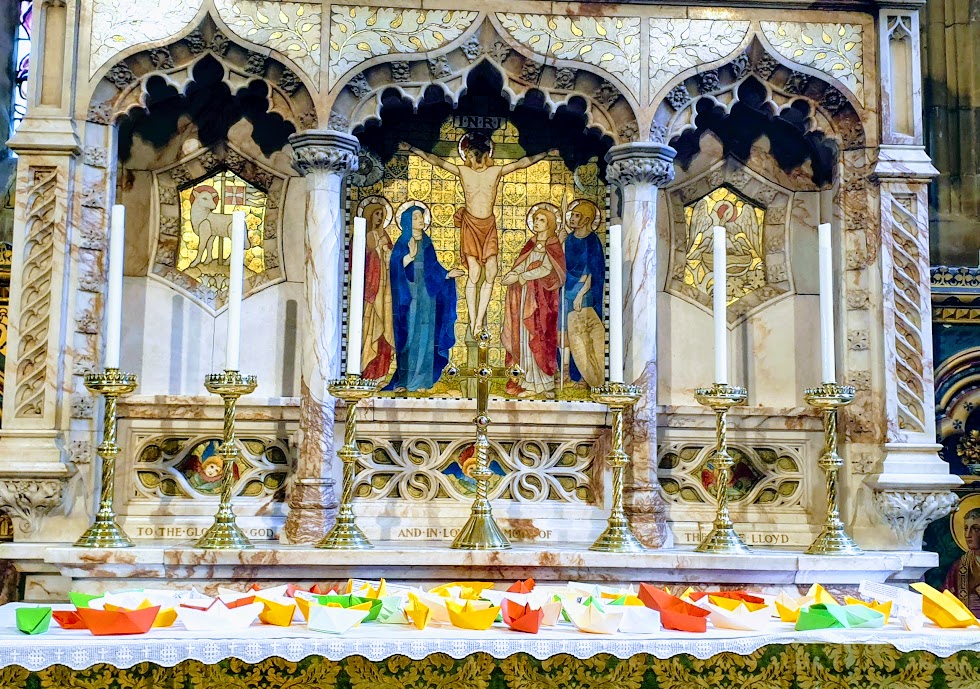
Our Sea Sunday revisited some of the hymns that evoke a deep emotional response, such as Eternal Father, Strong to Save, reflecting both our awe and echoes of eternity in those depths. Our intercessions allowed us to express that yearning through the wordless praying of the Holy Spirit, as we helped one another construct origami boats and then silently allowed them to hold and carry our thoughts and intentions towards God. The prayer-boats were blessed and we placed them on the altar during the service.
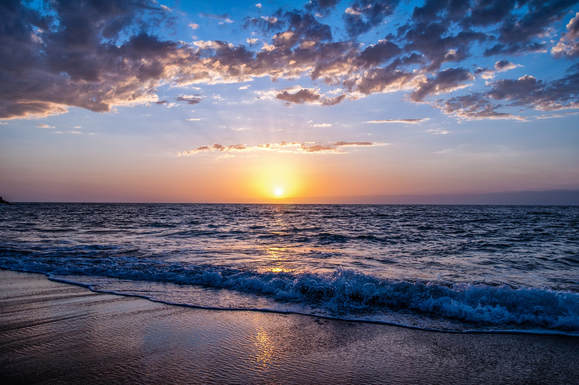
Informal worship usually includes a short introduction to a topic by the Vicar, followed by around ten minutes of sharing and reflecting together on that theme. In line with the 50th anniversary of the moon landing, we looked at some photographic images and thought about Jesus’ presence in all created things, and in all places. ‘Cosmic Christ’ is way of exploring how Jesus is present whenever and wherever the material and divine co-exist, which the writer Fr Richard Rohr tells us, is “always and everywhere,” and is ultimately to do with “the unification of all things.”
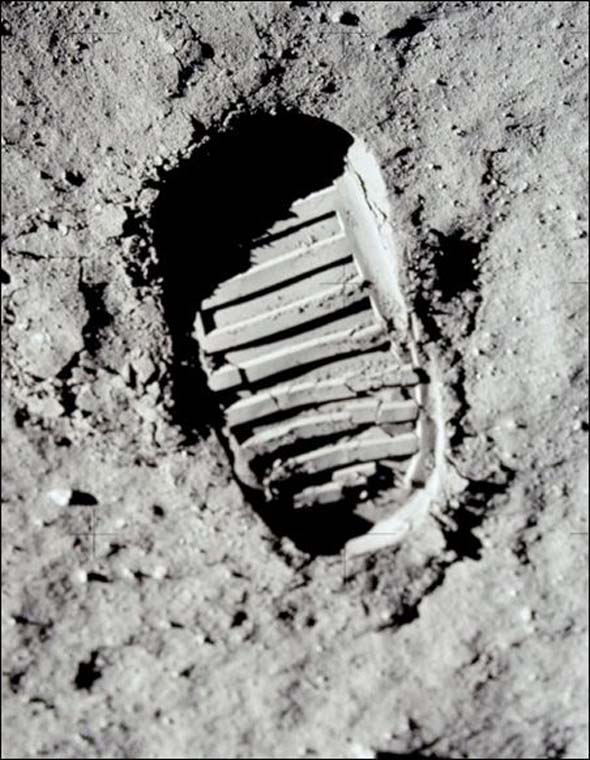
One final prophetic note from our discussions was sounded towards the end, with the Vicar’s last slide and comment: that we as humans leave an indelible footprint on this planet, just as the first footprints on the moon will be there for a million years, with no wind to blow them away. The economic and environmental impact of our consumerism and neglect to conserve and share the earth’s resources is reaching a tipping point. The poor, the vulnerable, and the fragile ecosystems of this planet are the urgent responsibility of all who work for hope, peace and a better world.

And we, who through faith, live and move and have our being in the breath of God, are tasked with and equipped for the ministry of reconciliation, as our slide of Salvador Dali’s Christ of St John of the Cross seems to challenge us to apprehend and embody: a new consciousness, and a new perspective. A new creation – and a new hope.
“For in him all the fullness of God was pleased to dwell, and through him God was pleased to reconcile to himself all things, whether in earth or in heaven, by making peace through the blood of his cross.” Col 1: 19-20
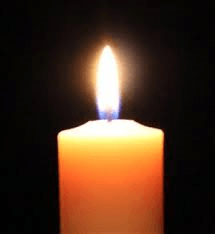
The next service of Healing and Wholeness will be on Sunday 28th July. Please note the new time of 5pm. If you come to the Tea Room, please feel free to come through to the Chapel after, you can bring your cuppa!
Every one is welcome. It’s a simple service of quiet prayer, meeting Jesus in the everyday situations of our lives together as we pray for our concerns and those of our world.
The Bishop of Southwark has asked for prayers for today’s ordinations at the Cathedral – which include our own Hannah who has been such a blessing to us at St John’s during her training.

We seem to have had a succession of special Sundays at Church recently. Last week was Trinity Sunday, when we thought about the completeness of God as Creator, Redeemer and Sustainer, and the union of love in our lives with him. We have taken with us into that relationship, from the week before, the many tongues of Pentecost through which the Holy Spirit communicates, witnessing to and revealing Jesus in places and people we did not expect; calling out, as the Isaiah writer describes, “Here I am, Here I am.” (Isaiah 65:1) We also have celebrated the Feast of Corpus Christi this week, where the union of body, mind and spirit in the Eucharist could hardly be more compelling or more intimate. And from there, having been so fed, and loved, as our true selves, we have responded to the call as best we can to feed, love, nurture and affirm others as God has made us all to reflect and embody glimpses of his glory.
So, coming to today’s reading from Galatians, I have been trying to let some of those things settle in my mind. Paul is writing to a Church whose ideas of how people who did not come from the Jewish faith or tradition could be part of the newly-formed Christian Church were being processed and tested. Then, as now, challenges about what hoops people need to jump through to be accepted were beginning to come to the fore, as the Gospel went out to the Gentiles, continuing Jesus’ healing miracles and conversations from his ministry on earth. Paul addresses this in this passage, with the language of love; and, it struck me, with language that seems to evoke a kind of mothering from God. So, a in a challenge to a patriarchal society, where there were men who thanked God they were not born a woman, a slave, or a gentile, the ideas and practice of division are directly contradicted. In talking about the ongoing revelation of God’s promises, through Abraham, Moses, and now Jesus, the language draws on images of children being guided by a loving, nurturing presence towards spiritual maturity. There is quite a lot about children – our identity as God’s children, each one of whom has the full rights of inheritance – which surely speaks to us of equality in all senses, including social justice, human rights and issues relating to social class, disability, gender and race. It is quite a radical statement. In fact, Martin Luther King alluded to it in his “I have a dream” civil rights speech in 1963.
We can perhaps see this step-by-step revelation, that Paul places in the context of God working throughout history, as a form of guidance and instruction. It is not too far off from the idea we see in Proverbs (Proverbs 1:20-21), of Wisdom crying out to her children, raising her voice in public places of debate, interaction and commerce – and where markers have been put in as boundaries, such as the walls and gates of the city. Wisdom is traditionally personified as female, and Scriptural references such as this borrow from, and add to that. When I was studying, I had to read a book, written nearly 500 years after St Paul wrote to the Galatians, by a Roman statesman and scholar who was thrown into prison on a false charge. His name was Boethius, and he wrote that while in prison and in despair, “there appeared standing over my head a woman’s form, whose countenance was full of majesty, whose eyes shone as with fire and whose power of insight surpassed that of all men…” (1) This is Lady Philosophy, and the book is called, The Consolation of Philosophy. Philosophy of course, being, the love of wisdom. This feminine aspect of the divine is an ever-present undercurrent, sometimes hidden, sometimes rising to the surface when we listen out for her, or appearing when we are in our own kinds of prisons or without hope. She is not afraid to cry out. She is an advocate for those on the margins, and challenges those who flock together in their comfort zones. She is on the look-out. She is not afraid of the new. Wisdom is not a monologue. She lives in community. Wisdom calls us to life. If it is the forces of death that divide us – then Paul asserts in these verses, it is our life in the body of Christ which unites us. It is both a personal, and a corporate healing. And from that, as we learn to respond and speak our own name in Christ, we can be both healed, and healers.
I mentioned at the beginning that we have celebrated Corpus Christi this week, a day of thanksgiving for the sacrament of Holy Communion in the Church. Staying with the Book of Proverbs, I came across a section subtitled Wisdom’s Feast, which is in Chapter 9:
“Wisdom has … set
her table… She has sent out her servant-girls,
she calls
from the highest places in the
town, “Come, eat
of my bread and
drink of the wine I have mixed.
Lay aside immaturity, and
live, and walk in
the way of insight.” (Proverbs 9:1-6)
Some churches celebrating Corpus Christi scatter rose petals before the procession. A link with the feminine, and a symbol of love that finds its fulfilment at the altar. Because, whatever else Wisdom is, she is undivided love. May we walk with her in the way of insight, and grow in love and maturity.
God the Holy Trinity, is undivided; and so, St Paul says, are we, in our lives together; because God, the Unity, is Goodness in all things. In strangeness, and in familiarity, it is God who speaks, who calls out, “I am here, I am here.” (Isaiah 65:1)
I will end with a quote, which is just the last few verses of Maya Angelou’s well-known poem, Human Family (2):
We love and lose in China,
we weep on England’s moors,
and laugh and moan in Guinea,
and thrive on Spanish shores.
We seek success in Finland,
are born and die in Maine.
In minor ways we differ,
in major we’re the same.
I note the obvious differences
between each sort and type,
but we are more alike, my friends,
than we are unalike.
We are more alike, my friends,
than we are unalike.
We are more alike, my friends,
than we are unalike.
(1) Boethius, The Consolation of Philosophy, tr V W Cooper, J M Dent and Company London, 1902, p.2 http://www.ccel.org/ccel/boethius/consolation.html, accessed 23/6/19
(2) https://www.poemhunter.com/poem/human-family/, accessed 23/6/19
God’s love has been poured out into our hearts
through the Holy Spirit, who has been given to us
– Romans 5:5
Our next Service of Healing and Wholeness will be this Sunday, 23rd June, at 6pm. Do come and join us, everyone is welcome.
This is a simple, said service, with candles and using a liturgy from the Iona Community. Come and listen and respond to God as we allow the Holy Spirit to bring our prayers of hope and healing into God’s heart of love for all he has made.
You must be logged in to post a comment.